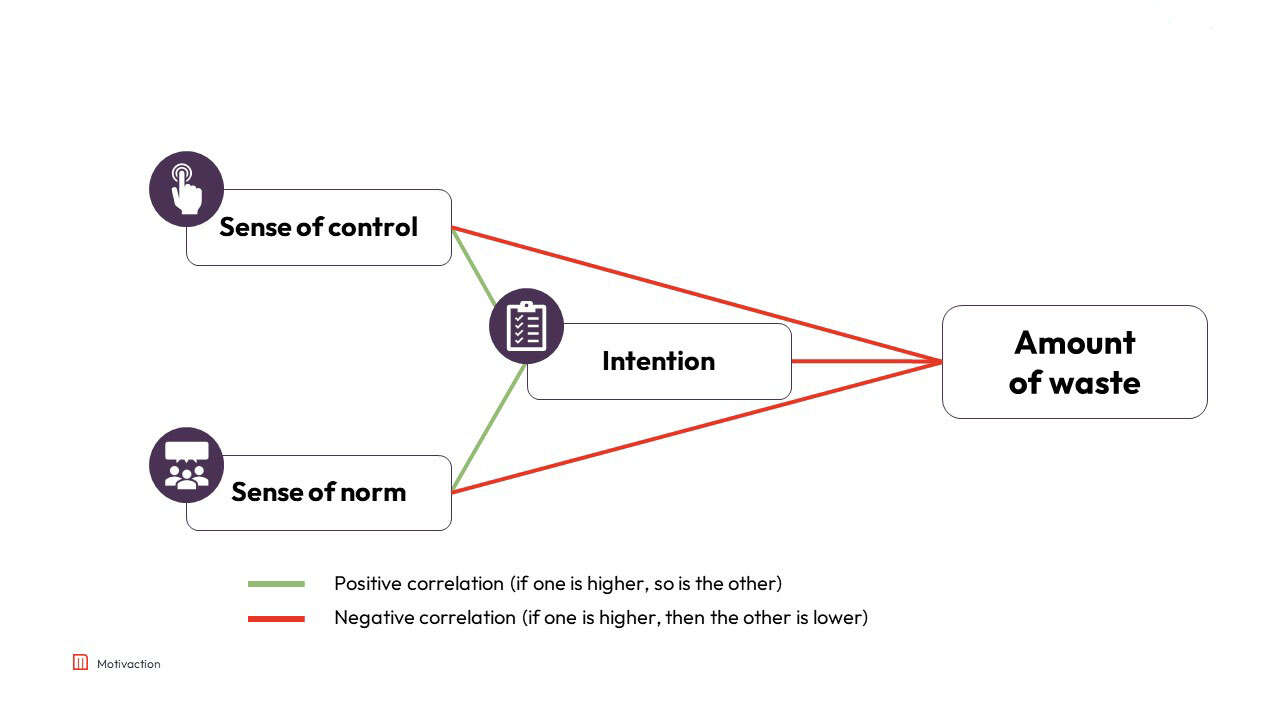From supermarket to dinner table: how do we reduce food waste?
In the Netherlands, we still throw away an average of 33.4 kilos of food per person, per year, according to figures from the Voedingscentrum (Dutch Nutrition Centre). This can and should be reduced. Producing our food requires a lot of land and water, releases a big amount of greenhouse gases and causes a loss of biodiversity. If food is wasted, all that environmental impact is in vain. How do you encourage Dutch people to throw away less food? In this article, you will read key research insights and we will give you a hint of how these insights can be used for communication and interventions.
Behavioural research
Commissioned by the Voedingscentrum, Motivaction conducted a behavioural study on factors predicting how much food Dutch households waste. Previous studies have examined many behavioural determinants. Predictors of the extent of food wastage revealed by these studies are mainly concrete concepts such as personal norms(1), routines related to recycling leftovers(2) and self-sufficiency in the kitchen(3).
However, few behavioural determinants are of great predictive value. The Voedingscentrum therefore wanted to investigate behavioural determinants that have received little attention. Consider both more abstract concepts such as time pressure, and more concrete concepts such as price sensitivity. Motivaction set to work on this question.
Attention to many different factors
The survey conducted by Motivaction measured many different factors, as well as the self-reported amount of food thrown away by Dutch households in the past week. Some of these factors partly predict the extent of food waste. We explain the three main factors: intention to avoid food waste, sense of norm and sense of control.
Food waste model

The three key factors
The biggest predictor of the amount of food waste is the intention to prevent food waste. This factor measures whether, in their own words, Dutch people do everything they can to prevent food waste. Dutch people with higher intention indicate they waste less food.
In addition to intention, norm-sensitivity also predicts how much food Dutch households waste. Dutch people with a high sense of norms feel that wasting food is not normal. In addition, they feel guilty or burdened when they throw away food. Dutch people with a high sense of norm generally waste less food. Norm feeling is not only a predictor of the degree of food waste, but also of the intention to prevent food waste. The higher the sense of norm, the higher the intention.
The sense of control experienced by Dutch people is the third predictor of the degree of food waste. Sense of control means that Dutch people feel and trust that they have knowledge and control over their own food waste. When Dutch people feel this more strongly, they waste less food. In addition, Dutch people with a high sense of control are also more likely to intend to prevent food waste.
What does this mean in practice?
The Voedingscentrum can use these results as additional justification for their current method of encouraging Dutch people to waste less food. For example, they have designed a sticker with information on the best place to store fruit and vegetables. This sticker can easily be stuck in the fridge, making the information accessible at the right time. With this sticker, you increase the skills to combat food waste and thus the sense of control. This sticker also sends a signal that the user of the sticker is committed to fighting food waste. This sets a social norm that food waste is bad. In this way, you increase the sense of norm. Indirectly, the increased sense of norm and the increased sense of control have a positive influence on the intention to prevent food waste.
A measuring cup that helps you cook the right portions can also help prevent food waste. By providing a tool, you increase the sense of control that Dutch people experience. After all, who doesn't know the eternal struggle: the thought ‘Well, this seems not enough for me’, causing you to cook more than you need anyway. With this measuring cup, you can be sure you are cooking enough food.
In short, with these results, the Voedingscentrum knows they are targeting the right factors with their interventions.
Are you curious about how you can use behavioural influence techniques to motivate your target group to adopt desired behaviour? Get in touch!


Discounts on health care premium for people with a healthy lifestyle. How do the Dutch people feel about it?


















